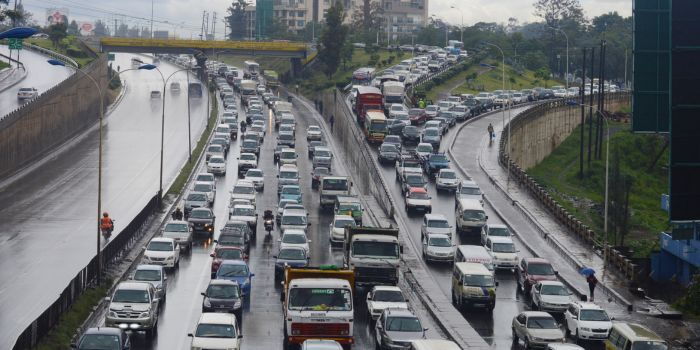Kenyans may experience serious transport disruptions next week after online taxi drivers declared they will down their tools in protest over poor pay.
The drivers, who mostly operate within Nairobi and other major towns, say the strike will go on until the National Transport and Safety Authority (NTSA), the Ministry of Transport, and leading ride-hailing companies address their grievances.
Speaking during a heated virtual meeting on Tuesday night, several drivers accused digital taxi apps of exploiting them with low pay despite the rising cost of living.
“These apps are paying us peanuts. We work long hours, yet at the end of the day, what we take home cannot even cover basic expenses. We want these companies to treat us fairly,” one cab driver complained.
The meeting, attended by dozens of drivers, was chaired by a leader popularly known as Chairman. He emphasized that one of the key demands is for companies to publish and implement standardised fare rates, with clear minimum charges for the shortest trips.
“Whether it is one kilometre, two kilometres, or three kilometres, there must be a clear minimum price that cannot go below a set standard. We want transparency so that drivers are not exploited,” he said.
As part of the strike, the drivers plan to stage a march to the Ministry of Transport and the NTSA headquarters, demanding answers on how trip prices are calculated and why companies seem to be deducting more than the allowed commissions.
Under the Transport Network Companies (TNC) Regulations of 2022, NTSA set the maximum commission at 18 per cent per trip. However, drivers argue that some firms are skirting around this law by introducing hidden charges and unexplained deductions.
One frustrated driver gave an example:
“If I make Ksh1,000, I end up with only about Ksh700. They claim the deduction is 18 per cent, but when you add all these other charges, it goes way beyond that.”
The strike is expected to start early next week and could last at least seven days. Organisers, however, warned that if their demands are not addressed, the boycott could stretch longer, potentially crippling transport in Nairobi and other cities.
Tensions also flared during the online meeting, with some drivers threatening tough action against colleagues who might continue working during the strike.
However, leaders urged restraint, asking those unwilling to participate to simply keep off the roads instead of undermining the collective effort.
This protest comes at a time when ride-hailing firms have slashed fares in recent months to attract more customers. While passengers may have welcomed cheaper rides, drivers say the move has left them struggling to make a living.
When contacted for comment, one ride-hailing company acknowledged awareness of the drivers’ frustrations but said it was still “monitoring the situation closely” before issuing a formal response.
If the strike goes ahead as planned, thousands of commuters may be forced to turn to matatus, boda bodas, or personal vehicles, worsening traffic jams in the city and pushing up alternative transport costs.
Join Government Official WhatsApp Channel To Stay Updated On time
https://whatsapp.com/channel/0029VaWT5gSGufImU8R0DO30


